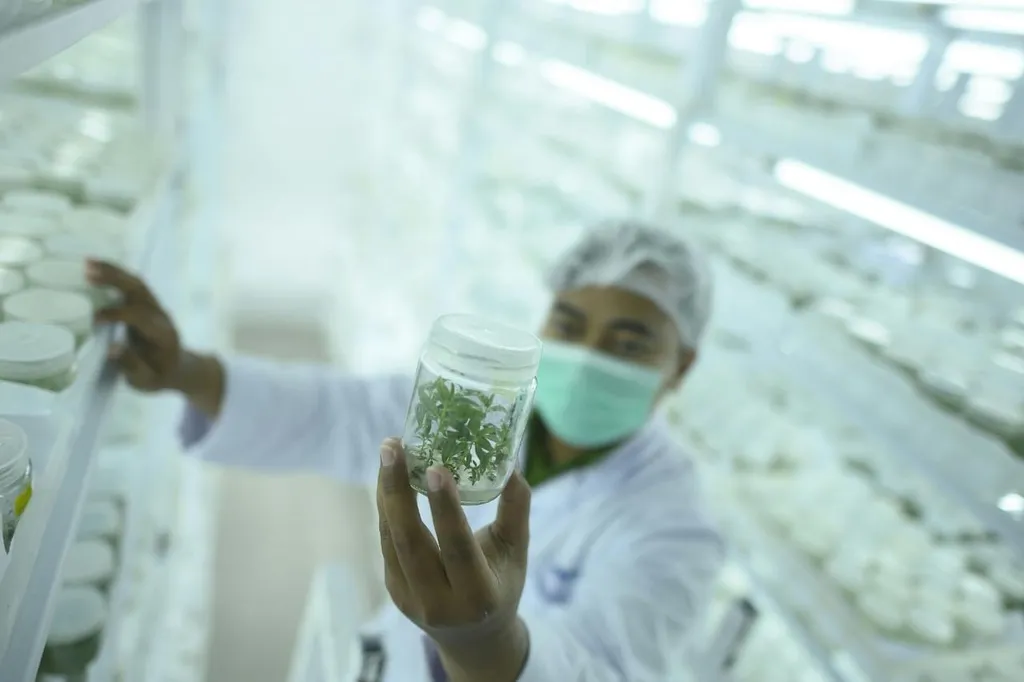In the heart of West Java, Indonesia, a scientist is tackling a challenge that could reshape the future of agriculture and horticulture. Nandang Permadi, a researcher at the Doctorate Program in Biotechnology at Universitas Padjadjaran, is delving into the world of plant micropropagation, a technique that has revolutionized plant multiplication and genetic modification. His work, recently published in *Current Research in Biotechnology* (translated as “Penelitian Saat Ini dalam Bioteknologi”), is shedding light on the persistent problem of microbial contamination and offering innovative solutions to combat it.
Plant tissue culture, a cornerstone of modern agriculture, enables scientists to propagate plants under controlled conditions, enhancing productivity, disease resistance, and even preserving endangered species. However, microbial contamination remains a significant hurdle, threatening the success of these efforts. “Contamination can inhibit regeneration, callus formation, and adventitious shoot development, and in severe cases, it can lead to tissue death,” Permadi explains. This issue underscores the need for effective strategies to manage and mitigate contamination, ensuring the sustainability of plant micropropagation.
Traditional methods such as thermotherapy, chemotherapy, and cryotherapy have long been employed to combat contamination. However, these approaches often come with limitations, including potential damage to plant tissues and environmental concerns. Permadi’s research explores emerging alternatives, including nanotechnology and natural products, which offer promising, eco-friendly solutions. “The application of nanotechnology and natural products presents a new frontier in contamination management,” Permadi notes. “These approaches not only enhance the efficiency of micropropagation but also align with sustainable agricultural practices.”
The implications of Permadi’s research extend beyond the laboratory. In the commercial sector, particularly in agriculture and horticulture, effective contamination management can lead to increased crop yields, improved plant health, and reduced losses. This, in turn, can bolster food security and economic stability. Moreover, the integration of nanotechnology and natural products into micropropagation techniques could pave the way for more environmentally friendly and cost-effective practices.
As the world grapples with the challenges of climate change and food security, Permadi’s work offers a glimmer of hope. By addressing the root causes of microbial contamination and exploring innovative solutions, he is contributing to the development of sustainable agricultural practices that can support a growing global population. “Our goal is to provide insights into innovative solutions that support sustainable agricultural practices and conservation efforts,” Permadi states.
Permadi’s research, published in *Current Research in Biotechnology*, highlights the importance of interdisciplinary collaboration in addressing complex agricultural challenges. By combining traditional knowledge with cutting-edge technology, scientists like Permadi are shaping the future of plant micropropagation and, by extension, the future of agriculture. As the world looks towards more sustainable and resilient food systems, the insights gleaned from this research could prove invaluable.
In the quest for sustainable agriculture, Permadi’s work stands as a testament to the power of innovation and the potential of interdisciplinary research. As we navigate the challenges of the 21st century, the lessons learned from his studies could very well shape the future of our food systems and the health of our planet.

